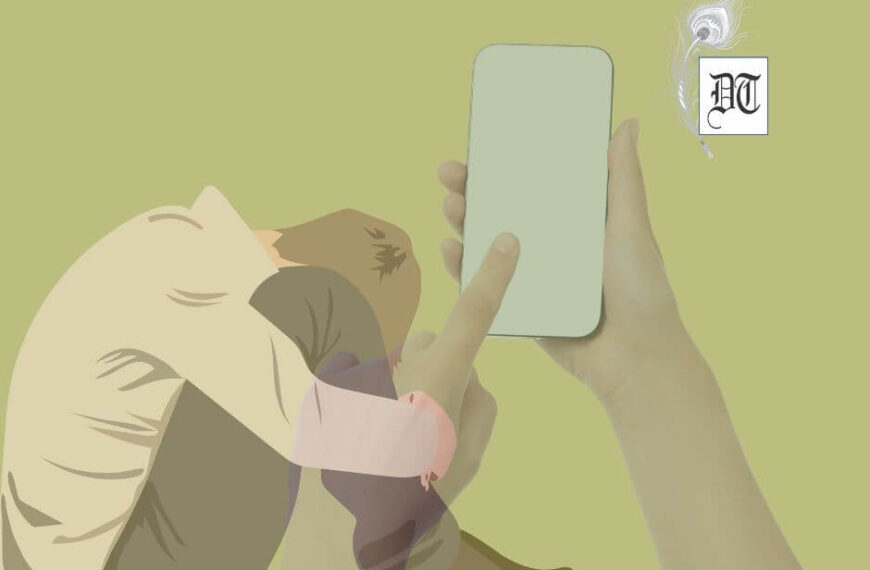How do mothers deal with the loss of a heartbeat (an unborn child)? The agony is unbearable. It wrenches out the heart of the mother. She feels guilty and blames herself for the loss of the child. Depression and dark despondency envelopes her. Typically grief has five stages; denial, anger, bargaining, depression, and acceptance. But if you talk with mothers of lost heartbeats, you will not really find a pattern. Some may skip a step or two. Nightmares and visions of their child often replace the numbness later on. There are incidents in which couples become irritable and fight. This is because their grief is transforming. The memories become traumatic. Anumita, our Managing Editor, shares her personal tragedy and how she coped with the loss of her ‘heartbeat’. She also tells us of parents who turned their personal grief into a mission, in the weekly column, exclusively for Different Truths.
“All the world is full of suffering. It is also full of overcoming.” ~ Helen Keller
 The monitor did not beep, and there was no gushing sound. The doctor moved her hand a little more, pressing the ultrasound probe and rolling it over another area. Nothing. A tiny frown formed on her forehead, but she smiled.
The monitor did not beep, and there was no gushing sound. The doctor moved her hand a little more, pressing the ultrasound probe and rolling it over another area. Nothing. A tiny frown formed on her forehead, but she smiled.
“Is everything alright?” I asked. My doctor mustered a big smile and said, “It’s just a few weeks, sometimes we count the days wrong. Let’s make an appointment for the next week and we will go on from there.” With a heavy heart, I drove back home and made the appointment for the next week. The next few days were full of torment. I could not tell what was happening. I kept my prayers strong and my belief firm and when I drove in the following week.
My world flat lined. Everything went silent. I had lost a heartbeat!
Within a few days, I started bleeding. I lost my baby. The soul who was to be a part of me and my life had left – unheard, unseen, unknown.
Yes, I had lost a baby of mine, during pregnancy. It was devastating and it seemed as if the whole world came crashing down. Self-blame became a huge part of the mourning for mothers like me. Time dulled the pain but the sense of loss remained dormant. It was ready to erupt.
I know friends and family members who have lost their babies, some as infants, some as toddlers, some as teenagers and some as adults. The pain is unbearable and the loss is immense.
I remembered the look in my grandma-in-law’s eyes when my uncle-in-law had died suddenly. She died every day after that.
There is no pain and suffering compared to that of the loss of a child. I am sure fathers suffer too, but mothers take it personally. The sense of a part of them being ripped off is so common.
I felt my heart had been pulled out of my body and was steamrolled on. The pain turned into a deep  physical one, which often left me lifeless. But, I had a four-year-old son. His face brought me back to the living. He deserved his mother back.
physical one, which often left me lifeless. But, I had a four-year-old son. His face brought me back to the living. He deserved his mother back.
Typically grief has five stages; denial, anger, bargaining, depression, and acceptance. But if you talk with mothers of lost heartbeats, you will not really find a pattern. Some may skip a step or two.
I never remembered denial ever being a part of my mourning, nor bargaining. Anger and deep sadness were a huge part of my mourning process. I was told that as I lost my child in my womb, so I do not experience all the symptoms of grief. After all, my child remained unseen, unheard and unknown to the world.
The feeling of numbness is common according to clinical psychologists, Jennifer Buckle and Stephen Fleming, co-authors of Parenting after the Death of a Child. She also specifies that this is more among the female members of the couples, who experienced such loss.
Nightmares and visions of their child often replace the numbness later on. There are incidents in which couples become irritable and fight. This is because their grief is transforming. The memories become traumatic. I did not go through this phase, probably because my child left still in the stage of being a fetus. But, I became withdrawn. A mild sense of depression and worthlessness followed.
Often parents in such situation avoid all those places or things that connect them to their lost child. The memories become unbearable for them. Again the mothers are more prone to ruminate about what would have been and what could have happened. Elderly parents ruminate more than younger parents; this is according to the Psychology professor Susan Nolen-Hoeksema.
The help of a psychologist or social worker works wonders for the parents to move forward and make a positive move. Family and friends are a wonderful support system during these times of need. They need to accept the loss and realise that it is alright to be happy again.
There are few parents, who make their loss into a mission. One such father turned his tragedy into a lifelong project of hunting down criminals after his child was kidnapped and killed. John Walsh the host of America’s Most Wanted was one of them. His son, Adam Walsh was abducted from a Sears store in a mall in Florida. His severed head was found in a drain two weeks later.
Columbus’s local TV channel’s sports reporter’s daughter Maria Tiberi was killed in a car accident. Dom Tiberi and his family were grief-stricken. This father did not give up hope and created the Maria Foundation and started a campaign of teen against distracted driving. He conducts talks in different schools about how dangerous distracted driving is and started Maria’s campaign. He asks teenagers to take the pledge against distracted driving, such as drinking, eating and texting while driving.
Parents of different stages of life face different situations and their society reacts differently to their loss. Their own reactions might differ too.
A child’s death may present unique dilemmas for:
- Single parents who are often self-supporting and may be more isolated and ignored
- Unmarried parents who may already have experienced the disfavor of family and others
- Teenage parents whose grief is often not validated because of their situation or their youth
- Parents in stressful financial situations whose struggle to satisfy their most basic needs may cause them to stifle or ignore their need to grieve and for whom loss is a constantly repeated theme
- Divorced parents and parents in blended or non-traditional families who may require unique responses or resources
- Step-parents whose grief may not be understood or appreciated
- Adoptive parents who may be expected to grieve less than birth parents because their “bond” with the child is perceived to be less intense in foster parents, who are not thought to have the same “right” to grieve as birth parents
- Parents who experience the death of the only child they may ever have and who also grieve for the loss of their parenting role
- Parents losing a child who is one in multiple births and who are faced with the double task of saying “goodbye to the baby who has died and yet…still loving and caring for the baby who is living” (Hosford 1994, 1)
- Parents who are removed or estranged from typical and traditional support systems
- Parents whose language, cultural traditions, and/or beliefs are largely unrecognised or misunderstood by the society
- Parents in homeless shelters, prisons, jails, or other institutions, whose needs require unique consideration and creative responses
- Parents with substance abuse problems whose child may have faced medical and/or developmental problems and who often must deal with guilt and other complex and overwhelming problems when a child dies.
(Ref: thealth.com/topics/the-death-of-a-child-2/)
I have learned to live through my loss, as most of us do. The void is still there, or should I say a small pause in my life. I did have another child after that. Life has come in full circle for me.
To all parents who have lost a heartbeat, you are in my prayers.
©Anumita Chatterjee Roy
Photos from the internet.
#Heartbeat #LossOfChild #SurvivingPain #ParentsOfLostChild #CopingWithLossOfChild #Family #Relationships #MotherWrites #DifferentTruths








 By
By
 By
By
 By
By
 By
By